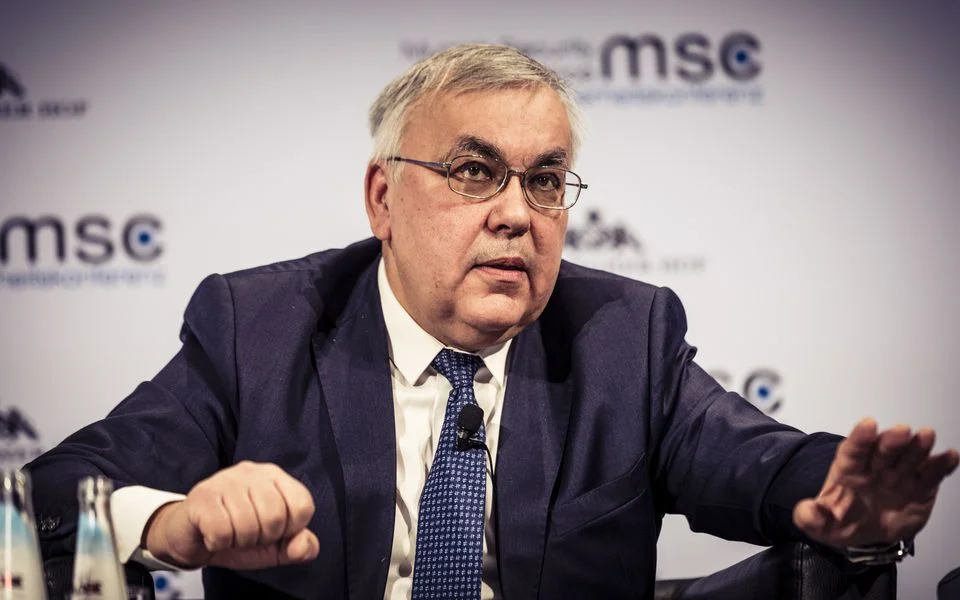By Richard Weitz
Much of this month’s Munich Security Conference saw a reaffirmation of anti-Trumpism nostalgia.
This culminated in the poignant silence in the hall that followed Vice President Mike Pence’s passing along President Donald Trump’s greeting to the delegates.
But the European speakers did rally behind one good idea which clearly is of interest on both sides of the Atlantic.
Besides calling on Moscow to eliminate its 9M729 nuclear-capable cruise missile (also known as the SSC-8), which violates the Intermediate-Range Nuclear Forces (INF) Treaty, several Western leaders appropriately pressured China to join the Treaty or accept comparable limitations on its growing missile power.
“Disarmament is something that concerns us all,”German Chancellor Angela Merkel told the meeting, “and we would of course be glad if such talks were held not just between the United States, Europe and Russia but also with China.” 1
Although China is unlikely to join the existing Treaty as written, given how the People’s Liberation Army (PLA) is massively arming itself with such weapons to coerce Taiwan and Japan as well as threaten the U.S. military forces in Asia, pressing Beijing to limit its strategic weapons buildup is an important goal.
Not only is Beijing’s unbridled defense buildup weakening regional stability, collectively aligning against China as well as Russia on this and other issues can reinforce transatlantic security solidarity.
It is certainly a better strategy for NATO leaders than fighting among themselves, as the allies were doing over the Iran nuclear deal and other Munich debates.
As a Russian business analyst has noted, whatever the anti-American sentiment among the European elite, they still see Russia and China as unsuitable partners “They were willing to put up with an authoritarian Russia but they’d never trust it to be a counterweight to the U.S. … an undemocratic Russia is of no use to Europe. It is at worst a threat and at best unpredictable.”2
At Munich, NATO Secretary General Jens Stoltenbergwas especially deft in turning aside provocative questions from the audience about allied divisions over the Treaty. Citing Russia’s Treaty violations,
Stoltenberg said that the U.S. withdrawal decision had the “the full support of all NATO Allies.”
A visibly frustrated audience member, Russian parliamentary leader Konstantin Kosachev, chastised the alliance for unreservedly backing Washington’s position instead of assuming a neutral position and giving the Russian arguments a genuine hearing.
Stoltenberg responded that, besides the 30 Russian-U.S. high-level meetings that occurred, many other NATO governments had also raised the issue.
He also reported that some of them had independently, through their own intelligence and verification processes, confirmed that Russia had violated the Treaty.
Explaining that the problem was that, “There are no new US missiles in Europe but there are more and more Russian missiles in Europe,” Stoltenberg saw the solution had to be either the elimination of the illegal Russian missiles or NATO military countermeasures.
These will involve collective allied actions—”not a bilateral arrangement…it will be measured… we need to find a balance between being strong, providing credible deterrence and defence, but not triggering an arms race.
Although Stoltenberg assured the Munich audience that the NATO response would not include the deployment of new U.S, nuclear-armed missiles in Europe, German Defense Minister Ursula von der Leyen had earlier declined to exclude that or any other response option.
“Precisely because we are at the start of the discussion,” she explained at the February 13 NATO Defense Minister’s meeting, “it is important that we do not start creating hierarchies or take out individual points but really leave the full lineup on the table.”3
The formal Chinese response to these proposals to join INF was, in the words of China’s State Councillor Yang Jiechi , a member of the Political Bureau of the Communist Party of China Central Committee and its de facto top diplomat, “China develops its capabilities strictly according to its defensive needs and doesn’t pose a threat to anybody else. So we are opposed to the multilateralization of the INF.”4
But at other times at Munich, Chinese defense experts provided a more realistic assessment of the potential for security bargaining with Beijing.
At the panel devoted to arms control, Retired General Yao Yunzhu, director emeritus of the Centre on China-American defense Relations, said that a new intermediate-range missile agreement must also encompass air- and sea-launched systems, where the United States and Russia remained superior, “because most of China’s military technology was ground-based and the country would not want to put itself at a disadvantage.”5
The U.S. speakers at the Munich Security Conference had an opportunity to exploit this opening to emphasize how Beijing’s aloof stand toward Russian-U.S. arms control was no longer tenable.
There is a clear opportunity to offer counterproposals regarding how China and other states might limit certain of their missiles, such as constraining their capabilities, imposing ceilings on their number, or restricting their deployment locations, as well as offer ideas for verification of these proposals.
President Trump has an opportunity to lead such a renewed dialogue, especially after he completes the trade negotiations with China and the nuclear talks with North Korea.
A fitting location for rolling out new U.S. initiatives could be at next month’s German government-sponsored arms control conference in Berlin, which has become a hotbed of counter-productive anti-Trumpism.
Footnotes
- https://www.reuters.com/article/us-germany-security-china/china-rebuffs-germanys-call-for-u-s-missile-deal-with-russia-idUSKCN1Q50NZ
- https://www.bloomberg.com/opinion/articles/2019-02-18/trump-isn-t-even-enough-to-drive-europe-into-russia-s-arms
- https://www.rferl.org/a/stoltenberg-nato-mulls-options-in-post-inf-world-doesn-t-wants-arms-race-with-russia/29768184.html
- https://www.japantimes.co.jp/news/2019/02/17/asia-pacific/china-rebuffs-germanys-call-u-s-missile-pact-russia/#.XHZToaB7nDc
- https://www.japantimes.co.jp/news/2019/02/17/asia-pacific/china-rebuffs-germanys-call-u-s-missile-pact-russia/


